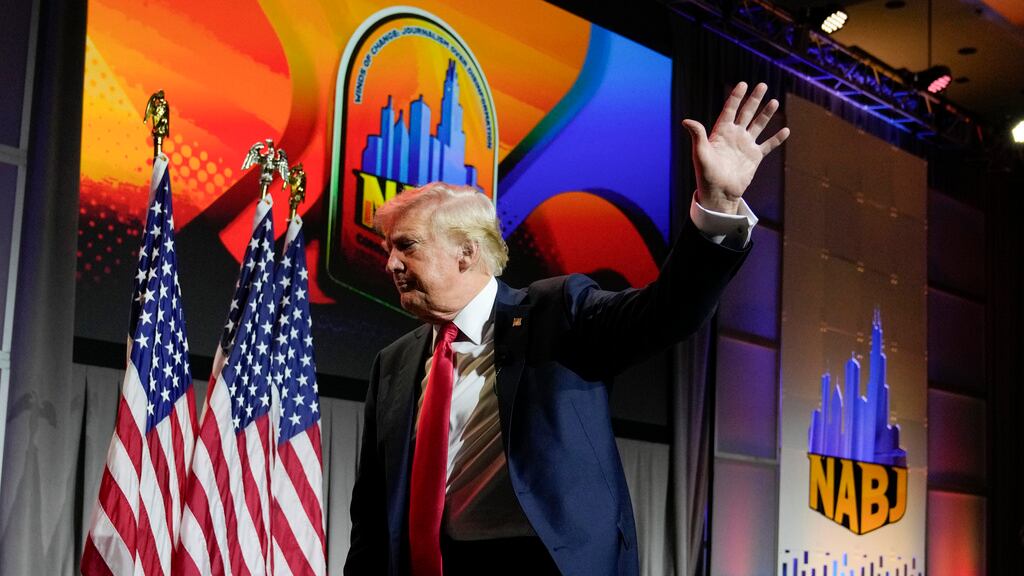As “rude” and “nasty” how the Republican presidential candidate Donald Trump, described the controversial interview he participated in on Wednesday with the National Association of Black Journalists (NABJ) of the United States, in which he talked about the Indian and Jamaican roots of his rival, the Democratic candidate Kamala Harris, the current vice president of the country.
PUBLICIDAD
Trump expressed that Harris decided to “turn black” a few years ago. “She was only promoting Indian heritage. I didn’t know she was Black until a number of years ago when she happened to turn Black. Now she wants to be known as Black. So I don’t know — is she Indian or is she Black? I respect either one but she obviously doesn’t because she was Indian all the way, and then all of a sudden she made a turn and she became a Black person.”
PUBLICIDAD
Kamala Harris has Indian origins from her mother, Shyamala Gopalan. Her father is Stanford professor Donald Harris, who is of Afro-descendant descent and hails from Jamaica. The current vice president spent her childhood in the black power movement in Oakland, in the San Francisco Bay Area. She studied at Howard University, historically known in Washington as the Black Mecca for the African American elite.
The former President of the United States said that he had never heard of Kamala Harris' "black" roots, only of her Indian origins, so he questioned why she has been emphasizing them only in recent years, suggesting that she does so for political gain.
“She changed her mind, and now she wants to be known as a black person.”
Controversial interview of Donald Trump

It is said that many African American journalists did not want to attend the controversial interview. NBC News says that the controversy started after a question "about a growing number of Republicans saying Harris is a 'DEI hire,' a term that refers to workplace policies promoting 'diversity, equity, and inclusion'."
El País highlighted that the interview, in which Rachel Scott from ABC News and Kadia Goba from Semafor were moderators, started an hour late and was controversial from the beginning, as Donald Trump mispronounced Kamala’s name (the correct form is ka-ma-la).
At all times, the interview was confrontational, with Trump responding to the hosts' questions. On several occasions, he labeled the questions as "unpleasant" and even questioned the intentions behind his invitation. Additionally, he emphasized that he has a record with black voters.
The female presenters asked the Republican candidate about his ability to govern in the next four years, so he stated that the interview was "very rude" and "disrespectful".
“The questions were Rude and Nasty, often taking the form of a manifesto, but WE CRUSHED THEM!” wrote Trump on his social media platform.
In a statement from Trump's campaign team, signed by Lynne Patton, senior campaign advisor, they stated: "The rude treatment that (Trump) received today from certain hostile members of the media will have very serious consequences. One would think they would have learned something from their repeated episodes of false outrage since President Trump first descended the escalators in 2015 [an act with which he announced his intention to run for the White House], but some simply refuse to understand. That will be their downfall in 2024."
From the White House, press secretary Karine Jean-Pierre said that Trump’s statements were “repulsive” and “insulting,” and added that “no one has the right to tell another person who they are.”
